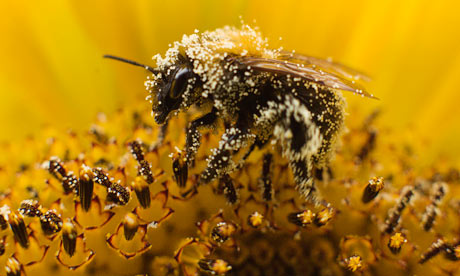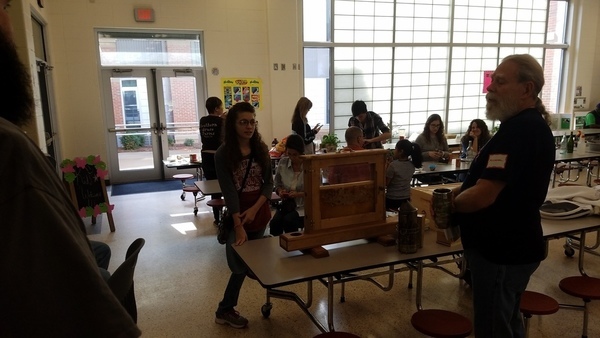 How long will it take the U.S. to follow Europe’s ban of
neonicotinoid pesticides, putting health of bees and food crop pollination
ahead of corporate profit?
How long will it take the U.S. to follow Europe’s ban of
neonicotinoid pesticides, putting health of bees and food crop pollination
ahead of corporate profit?
Damian Carrington wrote for the Guardian today,
Bee-harming pesticides banned in Europe:
EU member states vote ushers in continent-wide suspension of neonicotinoid pesticides,
Europe will enforce the world’s first continent-wide ban on widely
used insecticides linked to serious harm in bees, after a European
commission vote on Monday.
The landmark suspension is a victory for millions of environment
campaigners concerned about dramatic declines in bees who were
backed by experts at the European Food Safety Authority (EFSA). But
it is a serious defeat for the chemical companies who make billions
a year from the products and also UK ministers—who voted
against the ban. Both had argued the ban will harm food production.
The vote by the 27 member states of the European Union to suspend
the insect nerve agents was supported by 15 nations, but did not
reach the required majority under EU voting rules. The hung vote
hands the final decision to the European commission (EC) who will
implement the ban. “It’s done,” said an EC source.
-jsq
![[Movie: Flying from downed tree (65M)]](http://www.okraparadisefarms.com/pictures/2023-05-30--bees/20230530_163655.jpg)
![[Ripe bananas, bees, dog, flowers]](http://www.okraparadisefarms.com/pictures/2021-10-24--bananas/many.jpg)
![[Bee hive in bee tree stob]](http://www.okraparadisefarms.com/pictures/2021-07-14--trees-down-bees/20210714_122853.jpg)







